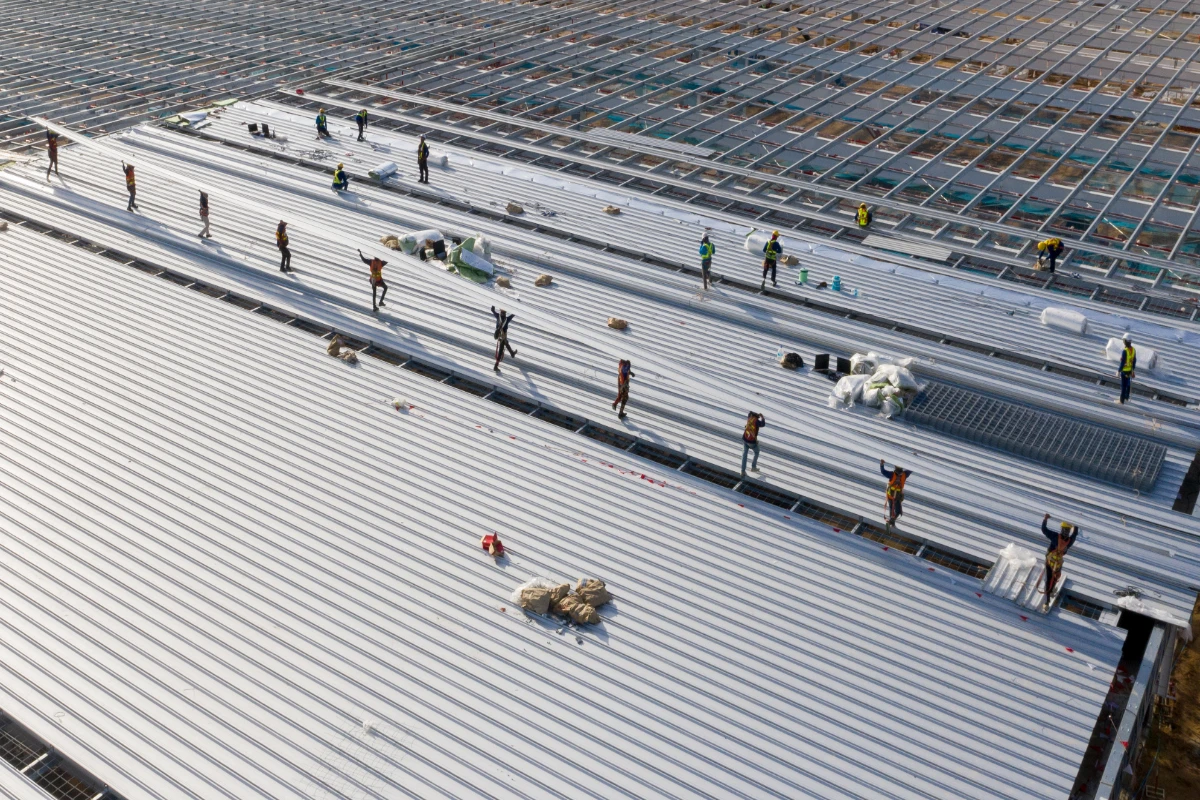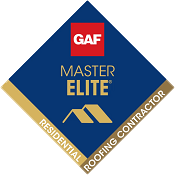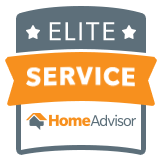When you’re a commercial property owner, ensuring the safety of individuals on your property is crucial. Not only is it a moral obligation to protect people from accidents and injuries, but there can also be costly legal and financial repercussions should accidents occur.
Commercial Roofs vs Residential Roofs: Key Differences
While roof safety is always important, it can become an even more critical issue for businesses. That’s because commercial roofs and residential roofs have distinct characteristics that set them apart.
- From a structural perspective, the roof types are often different. Commercial roofs are typically flat or have a low slope, while residential roofs often have a steep slope.
- The roof material can also differ, with commercial properties typically using materials like EPDM (rubber), TPO, and modified bitumen, while residential roofs often use materials such as asphalt shingles, tile, or metal.
- The installation process for commercial roofs is more complex and time-consuming due to their larger size and the need for specific equipment and expertise. Conversely, residential roofing projects can be completed more swiftly, often within a few days.
- In terms of maintenance, commercial roofs require more frequent and extensive upkeep due to their larger size and the potential for more severe damage. Residential roofs, on the other hand, require less regular maintenance.

Commercial Roof Safety
Commercial property owners can ensure that their roof is safe by following the steps below.
Regular Roof Inspections By a Qualified Commercial Roofer
Inspections should be done at least once a year, or more often if the roof is in a high-wind or high-snowfall area. The inspector will look for any signs of damage, wear and tear, or potential hazards.
Address Any Roof Problems Promptly
Don’t wait until a small problem becomes a big one. If the inspector finds any damage, have it repaired as soon as possible to prevent further damage and leaks.
Maintain Your Roof Properly
This may include cleaning the gutters and downspouts regularly, trimming trees and shrubs away from the roof, and applying a roof coating or sealant to help protect the roof from the elements.
Have a Roofing Emergency Response Plan in Place
This plan should outline who to call and what to do if your roof is damaged by a storm or other event.
Limit Access to the Roof
Only authorized personnel should be allowed on the roof.
Keep Your Roof Clean and Free of Debris
This will help to prevent water pooling and damage to the roof.
Trim Trees and Shrubs Around Your Roof
This will help to prevent branches from falling on the roof and causing damage.
Install Safety Equipment
This may include guardrails, walkways, and anchor points for fall protection.
Make Sure That All Roof Penetrations Are Properly Sealed
This includes vents, skylights, and HVAC units.
Train Your Employees on Roof Safety Procedures
This includes how to safely access the roof, how to identify potential hazards, and what to do in an emergency.

Safety During Commercial Roofing Projects
Of particular concern for commercial property owners is when they are having a new roof installed, roof repairs, or inspections.
That’s because commercial roofing is a dangerous job. In fact, citing data from the Bureau of Labor Statistics, USA Today noted that roofing was the fifth most dangerous job in the country in 2021. The fatality rate was nearly 10 times higher than the typical job in America, and the workplace injury rate was nearly twice as high.
Roofers are exposed to a variety of hazards, including:
Falls From Heights
Falls are the leading cause of death and injury among roofers. Roofers often work on high roofs with steep slopes, and they may be required to carry heavy materials and equipment. If a roofer falls from a height, they can suffer serious injuries or even death.
Electrocution
Roofers may come into contact with live electrical wires when working on roofs. This can lead to electrocution, which can be fatal.
Cuts and Lacerations
Roofers work with sharp tools and materials, such as knives, saws, and roofing sheets. These tools and materials can cause cuts and lacerations, which can be painful and may require medical attention.
Heat Exhaustion and Stroke
Roofers often work in hot weather, and they may be required to wear heavy protective gear. This can lead to heat exhaustion and stroke, which can be serious and even life-threatening.
Chemical Exposure
Roofers may be exposed to hazardous chemicals, such as asphalt and roofing chemicals. These chemicals can cause skin irritation, respiratory problems, and other health problems.
What Can Commercial Property Owners Do to Ensure Safety During a Roofing Project?
When it comes to ensuring the safety of your roofing project, here are some important considerations:
- Hire a qualified roofing contractor who is licensed and insured. Check their credentials with the local licensing board and make sure they carry appropriate liability insurance. Insist on obtaining documentation.
- Ask for references and take time to check them.
- Make sure the roofing company is aware of any existing safety regulations or guidelines and follows them.
- Ensure that all workers are wearing protective gear, such as hard hats, gloves, and steel-toed boots.
- Schedule frequent inspections during the project to ensure that all safety protocols are being followed.
- Keep a record of inspection results so you can easily identify problems and take corrective action.
- Consider investing in safety equipment that can help reduce the risk of accidents, such as scaffolding and guardrails.
By following these guidelines, you can ensure that your roofing project is completed safely and with minimal risk to workers, property owners, and other bystanders.
The Best Roofing Company in Florida
Keep in mind that whether you’re in Sarasota, Lakeland, or Georgia, it’s important to work with a reputable roofing company for any commercial roofing services. Stronghold Roofing & Solar understands the importance of safety and can effectively cater to your specific roofing needs.
FAQ’s – Commercial Roofing Safety
Commercial roofs should be inspected at least once a year, or more often if the roof is in an area with high winds or snowfall.
Protective gear such as hard hats, gloves, and steel-toed boots should be worn at all times, and guardrails, walkways, and anchor points should be installed for fall protection.
Make sure the roofing contractor is licensed and insured with appropriate liability insurance. Ask for references and check them, and ensure that all workers are wearing protective gear such as hard hats, gloves, and steel-toed boots. Schedule frequent inspections during the project to ensure that all safety protocols are being followed. Make sure the roofing company is aware of any existing safety regulations or guidelines and follows them. Also consider investing in safety equipment that can help reduce the risk of accidents, such as scaffolding and guardrails.
If there is an accident, act quickly and contact emergency services if necessary. Secure the site to prevent additional injuries or damage and ensure that all personnel involved are accounted for. Investigate what happened and document your findings in case of a liability claim. Last but not least, review safety procedures with employees to prevent similar incidents in the future.










